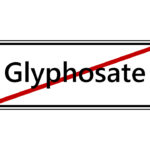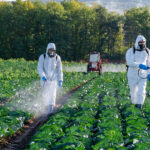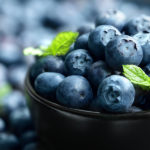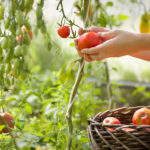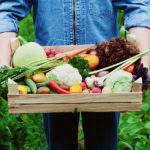By David Blyweiss, M.D., Advanced Natural Wellness
January 26, 2018
- Two food groups Americans ignore at their own risk
- Fruits and veggies save lives
- How to get the most out of your produce
Everybody knows that eating fruits and vegetables is good for them.
So you might find it astonishing to learn that only 12% of U.S. adults eat the recommended one and a half to two cups of fruit each day. Even fewer – only 9% – are meeting the vegetable guidelines of two to three cups a day.
If anything, we should be eating more than the government’s recommendations, not less.
This is a very sad state of affairs; especially considering that higher intake of plant-based foods can stave off many of today’s killer diseases by helping to lower the expression of pro-inflammatory genes.
MD Exposes the Hidden Danger to Your Eyes

When your eyesight starts to fail, it's a real problem. Suddenly you can't go to the grocery store... you can't get to the doctor if you have an emergency... you can't meet your friends for dinner…
Your "regular" doctor doesn't have time to keep up with the latest research. And the same goes for eye doctors. They go to school to learn how to fit you for glasses and contacts, but have no way of preventing the damage and loss of eyesight that threatens your freedom and independence.
Let me show you something that explains a LOT about how your eyes work.
In my FREE Special Report, I'll show you a HUGE, untapped resource for your eyes that safely and naturally restores clear, effortless eyesight.
Click here to get started...
For example, foods that contain sulforaphane can turn on tumor inhibitor genes. This greatly slashes your risk of many types of cancer, and easily explains why cruciferous vegetables like broccoli, kale, cauliflower, radishes and cabbage are such potent cancer fighters. These veggies are also great at up regulating your livers’ phase II metabolic detoxification processes moving dangerous toxins out of you and into the toilet.
But the benefits don’t stop there.
Here’s How Fruits and Vegetables Save Lives
When you add a few extra servings of fresh produce to your diet on a daily basis, it can help you live a longer, healthier and more active life. In fact, these life-giving foods can SAVE your life.
Here are just six things eating more plant-based foods can do for you. And I’ll bet you’re going to love each and every one of them…
Are You Suffering From...
- Love handles and a pot belly
- Romance that isn't what it used to
- Forgetfulness and inattention
- Low (or no) strength and endurance
- A sex drive that's shifted into neutral...or worse
If so...you may have Mature Male Burnout. Click here to discover more about this unique condition and what you can do about it.
- Your risk of developing heart disease decreases by about 4% for each additional portion of fruit or vegetables you eat each day. In fact, eating an extra 21 ounces of these plant-based foods daily could slash your risk of coronary heart disease by about a third, and stroke by about 19%.
- Higher fruit and vegetable intakes are associated with improved blood glucose levels and a lower risk of developing type-2 diabetes.
- Eating three or more servings of fruits and vegetables a day can cut the risk the risk of developing age-related macular degeneration by more than a third.
- Three to nine servings of fruits and vegetables daily decreases calcium loss, a much-needed mineral that helps maintain strong, healthy bones and prevent fractures as you age.
- It’s estimated that higher fruit and vegetable intake cuts your chances of developing cancer by almost 20%.
- People who eat the most fruits and veggies can cut their risk of mental decline and dementia by about a quarter.
Get Out of Your Rut and Get the Most Out of Your Produce
I notice that when it comes to the produce department, many folks are in a rut. They buy the same two or three fruits and vegetables, week after week. Then, they don’t even eat them all.
Well, there’s more to life than apples, bananas, lettuce and tomatoes. So the idea is to purchase a wide-variety of produce and actually eat it throughout the week.
Check out the berries, melons, citrus fruits, plums, pears and avocadoes. Don’t ignore the leafy greens (spinach, kale, cabbage, etc.), carrots, cucumbers, broccoli, asparagus, squash, cauliflower, peppers, celery, mushrooms or squash.
You also want to make sure you’re getting the most health benefit from your produce. This means there are some you should always buy organic… and others you can get away with washing before you eat them.
The reason for this is pretty simple.
Certain types of produce are laden with pesticides. In these cases, choosing organic is your best option. (I suggest finding a local organic food stand. Chances are good that their prices will be a lot lower than you’ll find at the store.)
However, some conventionally grown produce is relatively low in pesticide residue. This means you can bypass buying organic as long as you give the commercial versions a good wash before you eat them.
The Environmental Working Group calls these two groups The Dirty Dozen Plus and The Clean 15. Here’s what they recommend when it comes to buying organic, or just giving you produce a good wash.
| The Dirty Dozen (+1) | The Clean Fifteen | |
| ALWAYS BUY ORGANIC | WASH BEFORE EATING | |
| 1. Strawberries | 1. Sweet corn | |
| 2. Spinach | 2. Avocados | |
| 3. Nectarines | 3. Pineapples | |
| 4. Apples | 4. Cabbage | |
| 5. Peaches | 5. Onions | |
| 6. Pears | 6. Frozen sweet peas | |
| 7. Cherries | 7. Papayas | |
| 8. Grapes | 8. Asparagus | |
| 9. Celery | 9. Mangos | |
| 10. Tomatoes | 10. Eggplant | |
| 11. Sweet Bell Peppers | 11. Honeydew melon | |
| 12. Potatoes | 12. Kiwi | |
| 13. Cantaloupe | ||
| (+1) Hot Peppers | 14. Cauliflower | |
| 15. Grapefruit |
SOURCES:
Only 1 in 10 Adults Get Enough Fruits or Vegetables. News Release. Centers for Disease Control and Prevention. Nov 2017.
Hermsdorff HH, et al. Fruit and vegetable consumption and proinflammatory gene expression from peripheral blood mononuclear cells in young adults: a translational study. Nutr Metab (Lond). 2010; 7: 42.
- O. Oguntibeju, E. J. Truter and A. J. Esterhuyse. The Role of Fruit and Vegetable Consumption in Human Health and Disease Prevention, Diabetes Mellitus – Insights and Perspectives, Prof. Oluwafemi Oguntibeju (Ed.), InTech. 2013.
Wu L, et al. Intake of Fruit and Vegetables and the Incident Risk of Cognitive Disorders: A Systematic Review and Meta-Analysis of Cohort Studies. J Nutr Health Aging. 2017;21(10):1284-1290.


